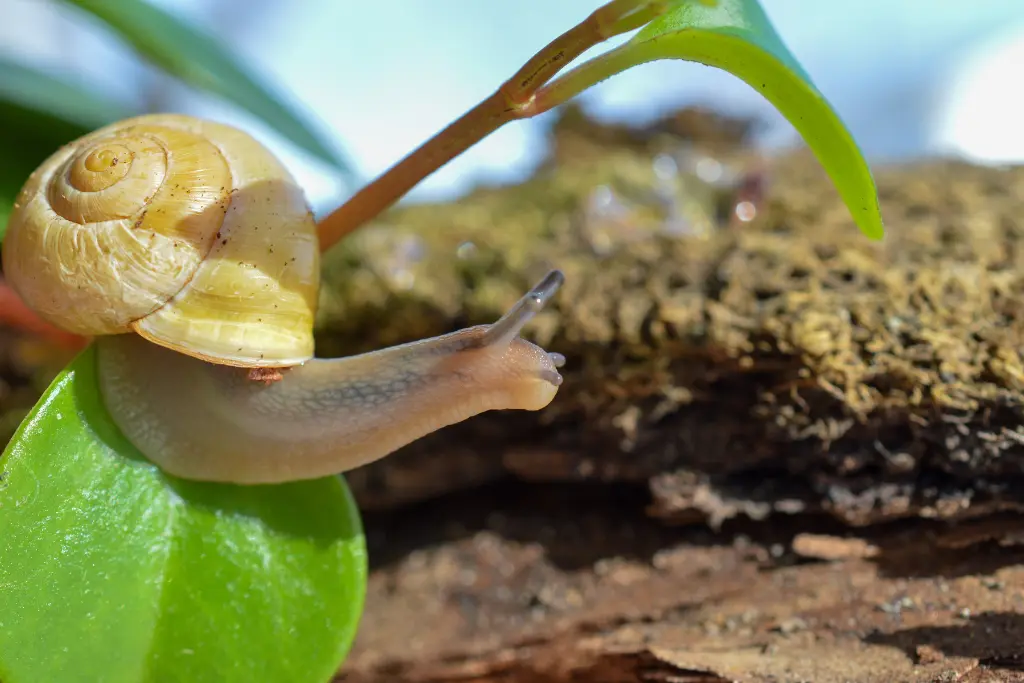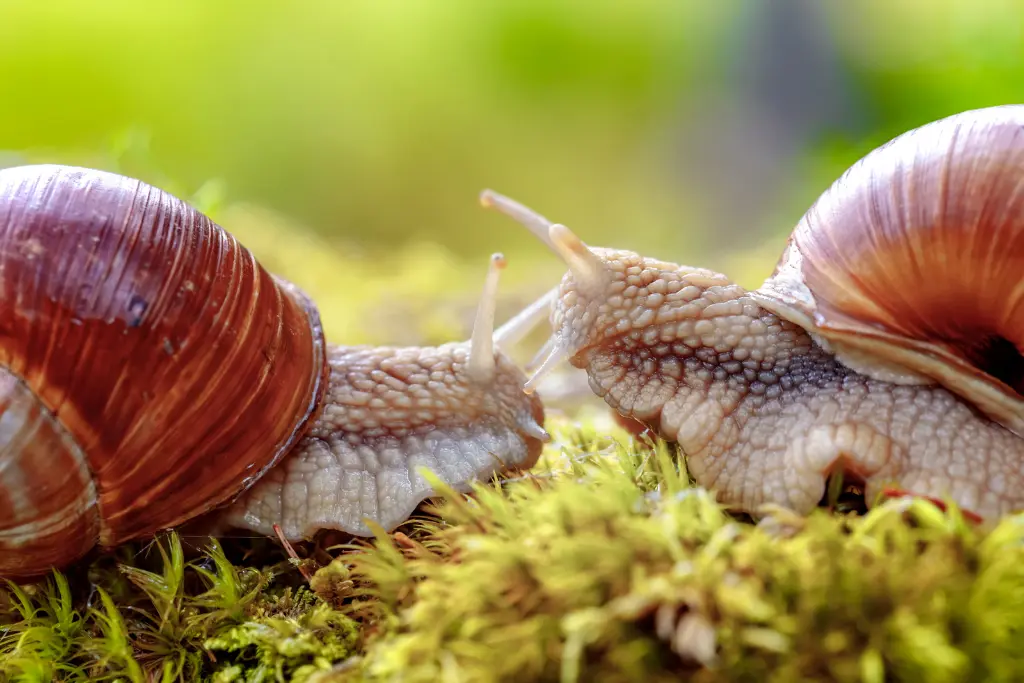Every animal, no matter how small or large, holds its own place within the complicated pattern of creation. Snails are one of the undervalued garden benefactors. In spite of their apparent lethargy, jellyfish are more than mere slimy irritants and have functions beyond appearances. This article will talk about 4 benefits of snails in the garden which are one the most interesting pets you can ever have.
The Purpose of a Snail
It is important to note why these slow creatures exist before discussing their benefits. The main group of organisms classified as gastropod mollusks, with the snail serving as the chief processor of organic matter. For all their size, these tiny animals have big roles as natural recyclers that participate in the process of decomposing dead plants and other organic material. The snails eat up the rotten materials and dry leaves, eventually forming manure for the garden.
Benefits of Snails in the Garden
Enhanced Soil Fertility
Snails have a high value on the improvement of garden soils, one of the primary advantages of their existence on earth. Snails munching of decomposed organisms reduce them in particle size when feeding. The development of humus, a black natural substance which nourishes the ground, is made possible by this procedure. The humus, further, improves soil structure, retention of moisture and nutrients, culminating into a good habitat for plants growth. In this manner, snails are natural gardeners thus improving a healthy ecosystem.
Natural Pest Controllers
Unlike what is generally perceived, some snails can be helpful to your garden. Interestingly, some varieties of snails are helpful because they consume common garden weeds. Snails eat minor bugs, worms, as well as their own kind thereby controlling the population growth of such pests. The biological control of the natural enemy decreases the need for using chemicals and supports a nature friendly way of gardening.
Soil Aeration
The snail’s snail, which moves gradually but faithfully, participates in this process of ventilating in the soil. Snails leave small holes as they move over the surface of the ground and this helps air to get down to the root system of plants. Soil aeration should be enough for the growth of roots in plants as well as for the absorption of necessary nutrients by them. This role is indirectly played by the snails and thus they help in keeping your garden healthy.
Waste Decomposition
Snails are gluttons who feed not only on dead leaves, but also other vegetable matter like that stalks and other fungi. Hence, they are good decomposers within the garden ecological system. Snail-mediated degradation makes the garden clean and eliminates possible pest breeding sites such as debris. Therefore, it helps to reduce the incidences of disease on plants leading to a cleanliness in the gardens.
Biodiversity Enhancement
Snails are often perceived as a nuisance that contributes little towards preserving biodiversity in gardens. The ecosystem consists of these creatures that move slowly forming an aspect of the complex chain of feeding. Birds, beetles and many other insects use them for food. In addition to that, animals come to feed upon the snails. This makes your garden alive by providing natural balance between animals and food. Through predation, snail eating predators also help in managing these potential pests. Allowing the garden to evolve naturally with the ecosystem ensures that it is resistant and in harmony, thus lessening the need of chemicals as interventions.
Indicator of Environmental Health
Snail behavior and population dynamics are good signs of the general state of your garden’s environment. Temperatures changes, humidities, or the quality of soils have a great degree of influence on snails. Knowing this will help you observe their presence, abundance, and behaviour which in turn will inform you about the overall health of your ecosystem.
Such imbalances could be due to overuse of pesticides or poor soil conditions, as shown by decreasing numbers in snails. On the other hand, increased snail activities may signify that an ecosystem is healthy and balanced. Gardeners can adopt monitoring snails as a tool that could sound early warnings and guide them on sustainable gardening methods.
Natural Garden Cleanup Crew
Picture this: army of snails strolling through your vegetable garden, feeding on falling and dead leaves for food. The garden is also a home for snails which plays a cleaning up role in the nature. They have unquenchable appetite for organic wastes which contributes to decomposition of the wastes into soil nutrients. Essentially, the snails help ensure that there is an ecological balance in your garden.

Addressing Common Misconceptions: Disadvantages of Eating Snails
Eating snails is a hotly debated issue in the garden as they are perceived to have numerous benefits despite the misconception. It is important to differentiate garden snails from snails purposefully bred for food. The garden snails could be infectious with toxins or parasites that are considered as dangerous to humans in terms of being unfit for food.
Are Snails Beneficial? Debunking the Myth
It can therefore be concluded that snails have immense benefits to the gardening ecosystem. These seemingly insignificant creatures play major roles in decomposition of biodegrable wastes, natural pest control and aeration of the soils as well as improve soil fertility. Instead of considering snails as simple pests in the garden, gardeners need to start realizing their importance and seek some mutual living arrangements with these quiet helpers of the garden.
By accepting the advantages of snails, we open ourselves to a greener and more environmentally friendly method of gardening that nurtures a host of natural gifts which help add life to our gardens.
Addressing Common Questions
What is the significance of snails as regards the garden?
Snails are very important in a garden because they act naturally as garbage men who recycle organic matter during decomposition. Besides, they contribute tremendously in the ecosystem by being a component of the food chain and promoting biodiversity.
Why is it good to eat snails?
While snails are not a common food source in many cultures, they offer several nutritional benefits that make them a good addition to a healthy diet. Here are some of the reasons why eating snails can be beneficial:
- High Protein Content
- Low Fat Content
- Rich in Iron
- Good Source of Calcium
- Contains Vitamin A
- Provides Omega-3 Fatty Acids
- Low in Cholesterol
- Potential Antioxidant Properties
- Potential Antibiotic Properties
The cons of snails in the garden.
Snails can have many beneficial qualities but certain gardeners may view them as pest because they eat plants which is a known fact. Sometimes snails may be harmful to farm produce, and so measures may be important.
Why is it that people use snail shells?
The intricately patterned and multicolored shells of snails would become attractive ornaments for a garden. Nature may also motivate human creativeness and aesthetic tastes. Another aspect is that of shells which are used to house these animals and give us an insight on species’ evolution strategies.

